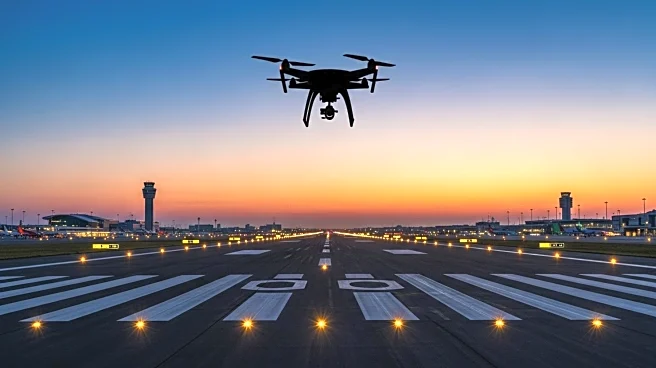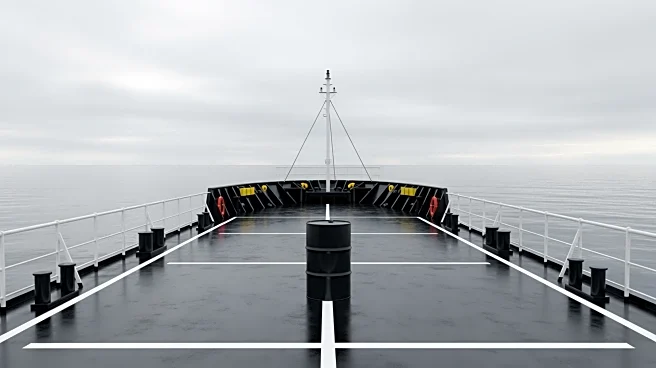What's Happening?
Munich Airport in Germany has reopened after being closed twice within 24 hours due to drone sightings. The initial closure occurred late Thursday night, resulting in the cancellation of 17 flights and affecting nearly 3,000 passengers. These passengers were provided with camp beds, blankets, and food as they waited for operations to resume. The airport reopened Friday morning, but was closed again after further drone sightings, leading to additional flight cancellations and rerouting. This second closure stranded approximately 6,500 passengers. The premier of Bavaria, Markus Soeder, has called for emergency legislation to empower police to shoot down drones and secure German airspace. Although German intelligence has not confirmed the drones as Russian, the incidents are part of a series of suspected Kremlin-related activities in Europe.
Why It's Important?
The repeated closures of Munich Airport due to drone sightings highlight the growing concerns over airspace security in Europe amidst ongoing geopolitical tensions. The incidents have disrupted travel for thousands of passengers, indicating the potential for significant economic impacts on the aviation industry. The situation underscores the need for enhanced security measures and legislative action to protect airspace from unauthorized drone activity. Additionally, the suspected involvement of Russia in these incidents points to the use of hybrid warfare tactics, which could further strain relations between Russia and European countries. The broader implications include increased pressure on European governments to address airspace security and potential shifts in international policy regarding drone usage.
What's Next?
In response to the drone sightings, Bavarian Premier Markus Soeder has proposed emergency legislation to allow police to shoot down drones, aiming to secure German airspace. This legislative action could set a precedent for other European countries facing similar threats. The ongoing geopolitical tensions may lead to increased surveillance and security measures at airports across Europe. Additionally, the aviation industry may need to adapt to new regulations and technologies to mitigate the risks posed by unauthorized drones. The situation may also prompt diplomatic discussions between European nations and Russia to address the underlying causes of these incidents and prevent further disruptions.
Beyond the Headlines
The drone sightings at Munich Airport raise ethical and legal questions about the use of drones in civilian airspace. The potential for drones to disrupt air travel and pose security risks necessitates a reevaluation of current regulations and enforcement strategies. The incidents also highlight the vulnerability of critical infrastructure to emerging technologies, prompting discussions on the balance between technological innovation and public safety. Long-term, this could lead to increased investment in drone detection and mitigation technologies, as well as international cooperation to establish comprehensive guidelines for drone usage.









